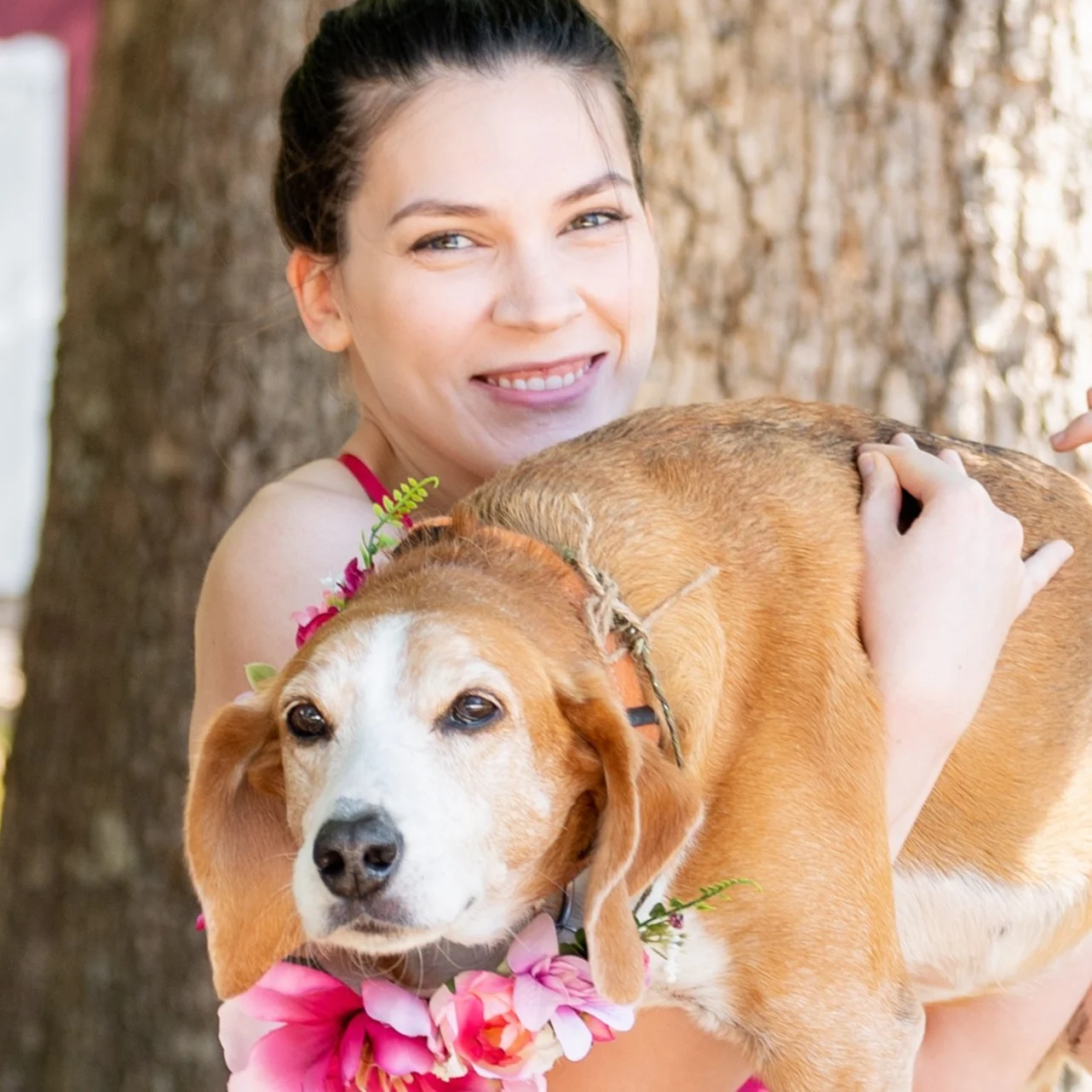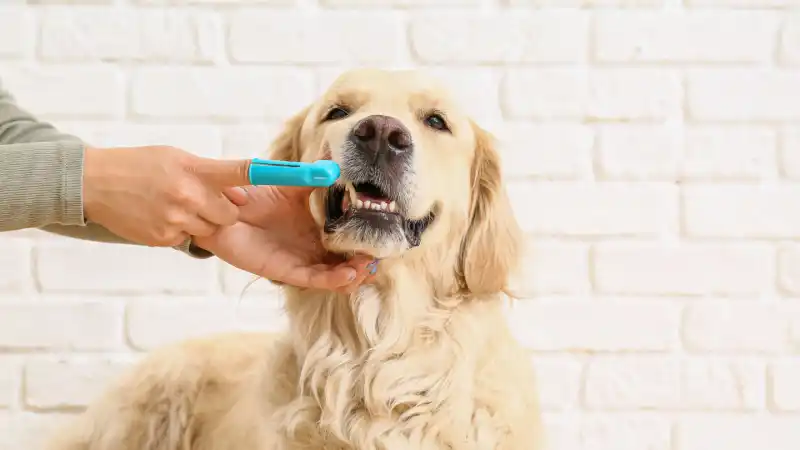When Should I Worry About My Dog’s Diarrhea?
Canine diarrhea is a common ailment, but it could be a sign of a serious underlying condition. Here are causes, treatments, and when to see your vet.

If you found yourself clicking on this article, the odds are that you and your dog are not having a very good time. While it’s not fun to talk about the smelly brown puddles your dog leaves behind, understanding how diarrhea develops and how to treat it can help you cure your dog (and your carpet) much faster.
Although canine diarrhea is a common ailment many dog owners are familiar with treating, diarrhea can be a symptom of a much more severe illness or, if left untreated, can lead to severe dehydration.
In this article, we’ll cover the reasons for dog diarrhea, how to stop dog diarrhea, and dog diarrhea remedies you can use when your dog becomes ill.
What Causes Dog Diarrhea?
Mild cases of canine diarrhea are very common and develop due to mild intestinal distress. Sometimes, something as innocuous as eating too much grass can upset your dog’s stomach, but it is unlikely to lead to more threatening issues.
However, it can often signify a more severe condition, such as a lodged object… or even cancer. Before jumping to the worst-case scenario, you’ll first want to examine the following triggers to see if they apply to your dog:
Sudden dietary changes
Ingesting foreign objects, such as bones or toys
Dietary indiscretion, such as eating garbage or table scraps
Parasites
Viral infections
Antibiotics or other medications
Bacterial infections
Toxic plants or substances
Stress or anxiety, especially after your dog has traveled or experienced a change in environment
Illnesses
How to Stop Dog Diarrhea
Once you or your vet have determined the diagnosis for your dog’s loose stool, you can develop a tailored treatment for the underlying problem. If your dog only has one or two runny stools and is otherwise acting normally, you can usually take a conservative approach to diagnosing and treating your dog. In fact, most remedies can start with what you have available in your home.
Diet Change
One of the simplest methods to ease your dog’s sensitive tummy starts in your kitchen. Feeding your dog ingredients that act as binders can help rebuild the consistency of your dog’s loose stool. Similar to how humans eat bland foods when they are sick, feeding your dog similarly plain foods can prevent further upset.
Here are some of our favoritedog diarrhea remedies:
Cooked white rice
Cooked plain chicken
Rice water
Cottage cheese
Pumpkin**(not pumpkin pie filling)**
Plain yogurt
Sensitive stomach dog food
Once your dog can maintain a solid stool without relapse, you can slowly reintroduce small portions of your dog’s regular food for several days until they’re back in tip-top shape! Always follow your veterinarian’s guidance before making abrupt changes to your dog’s diet.
Fasting
Another way to fix an upset stomach is by keeping an empty stomach. By allowing your dog to fast for 12 to 24 hours and only giving them access to water, you can clear whatever is causing them distress and allow their stomach to settle. Always consult with your vet before choosing to withhold food. Some dogs, such as puppies or senior dogs, have nutritional needs not suited for fasting. Due to the dehydration caused by diarrhea, you may also provide your dog with unflavored Pedialyte under the guidance of your veterinarian.
Antidiarrheal Agents
Your veterinarian may prescribe antidiarrheal agents, probiotics, or dewormers in some instances. Because it’s difficult to judge the effectiveness of some probiotics and supplements, always seek your veterinarian’s recommendation on whether they are a good fit for your dog before your dog starts taking them. Never give your dog human medications unless you have consulted with your veterinarian. Even common over-the-counter human medications use can be toxic to your dog.

Every Dog and Cat Deserves the Pet Insurance of Champions
Get prize-winning care for your pets.
What Does the Color of My Dog’s Diarrhea Mean?
Knowing the normal frequency, color, and consistency of your dog’s poop is key to deciding when you should contact your veterinarian and help aid them in determining reasons for your dog’s diarrhea. With that in mind, some dogs just have more sensitive stomachs than others. If your dog has occasional upsets, it’s worth watching to see if there are any common triggers to avoid in the future.
Yellow Diarrhea
If you have treated your dog with a bland diet (such as chicken and rice) in the past, then you may be familiar with yellow diarrhea. The chicken and rice are white, and when they mix with yellow bile in the gastrointestinal tract, it comes out as yellow stools.
Bloody Diarrhea
Some conditions such as large bowel diarrhea or colitis may result in bloody stool. When tiny blood vessels in the lower part of the dog’s GI tract break open, they can begin to bleed into the stool. While a small amount of blood in your dog’s stool is not terribly concerning, your dog should go to a vet as quickly as possible if their stool is mostly blood.
Black Diarrhea
Dark colored or black diarrheais often caused by bleeding ulcers or a lodged foreign body. Stool of this variety appears to have a black or greenish color. Before panicking, remember that food coloring can also change the color of your dog’s stool, so if Fido ate your five-year-old’s purple birthday cake, that might be the culprit. Either way, use your best judgment when deciding to seek treatment from your vet.
How Serious Is Canine Diarrhea?
Some cases of dog diarrhea can be easy fixes with the remedies we listed above. But for others, things aren’t so simple. Recurring dog diarrhea can be frustrating for both you and your veterinarian as the causes may be more challenging to identify.
Bloody stool, or if your dog shows other signs of illness like abdominal pain, weakness, or vomiting, may indicate a serious or life-threatening condition. However, if diarrhea is the only symptom your dog is exhibiting, it’s less likely that your veterinarian will need to perform extensive tests to rule out causes such as parasites and infections. For example, diarrhea can be one of the first signs that your dog or puppy has contracted parvovirus, which can be life-threatening.
Here are some signs to look for when deciding whether to make a trip to the vet:
Diarrhea won’t stop
Vomiting
Irregular drooling
Lack of appetite
Signs of dehydration
Blood in stool
Existing conditions, such as cancer or other illnesses
Side effects of current medications
Use your instincts. You know your dog best. If something seems wrong, follow your intuition and call your vet.
If you choose to bring your dog to the vet, they will use a series of diagnostic tests to help identify what is causing your dog’s diarrhea. This could include x-rays, blood tests, ultrasounds, endoscopy, or exploratory abdominal surgery, depending on the severity. Before you arrive, your vet may also ask you to bring a fecal sample so that it may undergo an evaluation.
If you have tried a remedy for dog diarrhea and your dog has not shown improvement within two days, your vet may recommend more intensive treatment. Severe, continuous diarrhea can cause metabolic disturbances that require intravenous fluid therapy or hospitalization.
Future symptom management will depend on your dog’s specific diagnosis and reaction to the treatment they’ve been given. While most dogs experience a full recovery, some dogs experiencing chronic diarrhea may need long-term medication or dietary management in order to stay regular.
Preparing for Upset Stomachs
While diarrhea is often a minor event healthwise, it can have a major impact on your wallet if you’re not prepared. The average cost of diagnosing and treating your dog’s diarrhea or intestinal upset can be hundreds of dollars. If your dog has a more severe condition causing the diarrhea, that price can be even higher.
To make things easier on your wallet, AKC Pet Insurance’s Accident and Illness plans (underwritten by Independence American Insurance Company) can provide coverage for diagnostics and treatment related to canine digestive issues.

Every Dog and Cat Deserves the Pet Insurance of Champions
Get prize-winning care for your pets.

As an avid fan of all things that meow or bark, Jodie uses her expertise in human and animal health to have a positive impact on the well-being of pets and their owners. Jodie lives in Durham, NC with her cat, "Noodle", and two dogs, "Lilly" and "Clementine".
READ MORE ARTICLES

